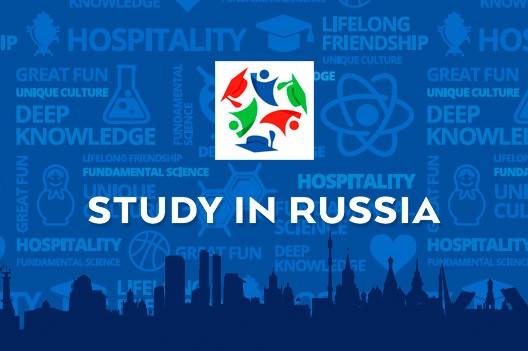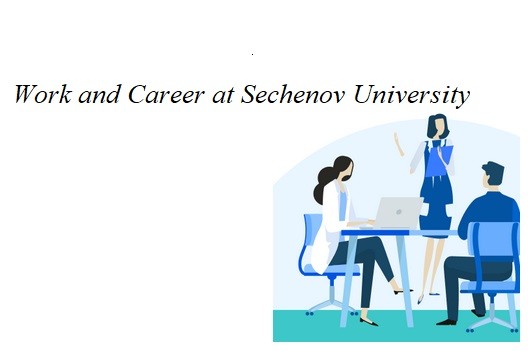- Абитуриенту
-
Обучающемуся
- Я – профессионал
- Локальные нормативные акты
- Образовательные программы
- Стоимость обучения
- Университет - обучающемуся
- Центр карьеры
- Учебный центр по маркировке
- Учеба и наука
- Школы мастерства
- Комфортная среда обучения
- Образовательные стандарты
- Стипендии и материальная поддержка
- Вакантные места
- Общежития
- Сотруднику
- Аккредитация специалистов
-
About University
- Mission & Brand Strategy
- University Leadership
- Rector's Welcome
- History
- Regulatory Documents
- Contacts
- Staff
- International Recruitment
- Partners
Applicants- Why Sechenov University
- Degree Programmes in English
- Preparatory Courses
- Non-Degree Programmes
- Transfer from other Institutions
24.03.2021Sechenov University welcomes Japanese delegation
 A group of high-ranking officials from the Embassy of Japan in Moscow has visited Sechenov University on 23 March 2021. The meeting focused on the bilateral relations between Russian and Japanese scientists, in particular the collaborations between Japanese universities and Sechenov.
A group of high-ranking officials from the Embassy of Japan in Moscow has visited Sechenov University on 23 March 2021. The meeting focused on the bilateral relations between Russian and Japanese scientists, in particular the collaborations between Japanese universities and Sechenov.
The delegation included Toru Yoshida, First Secretary for Science and Technology at the Department of Economics, Embassy of Japan in Moscow; Yosuke Kato, First Secretary for Collaboration in Healthcare at the Department of Economics, Embassy of Japan in Moscow; and Yumie Hirata, Second Secretary for Collaboration in Healthcare at the Department of Economics, Embassy of Japan in Moscow.
The guests visited University Clinical Hospitals No. 1 and No. 2, as well as the Biomedical Science and Technology Park. At the follow-up meeting, the participants discussed Sechenov University’s commitment to recruiting international students, specific areas of research cooperation with Japanese universities, types of academic exchange, and response to the COVID-19 pandemic.
Sechenov University has been involved in a number of collaborations with leading universities in Japan. We are keen on exchanging the best practices of medical personnel training, conducting cutting-edge research, and developing new medical technologies.
Currently, Sechenov University is cooperating with Niigata University and Oita University. We are conducting joint internship programmes and practical training courses (up to three months). In addition, our students participate in the G-MedEx International Summer Exchange Programme at Niigata University.
The collaboration agreement with Juntendo University is due to be signed in near future. This partnership is based on a joint grant programme by Sechenov University, Japan Academy, and Juntendo University. This cooperation will focus on the molecular and genetic features of lymphogenous metastasis.
Sechenov University is also a member of HaRP — Human Resource Development Platform for Japan–Russia Economic Cooperation and Personnel Exchange.
Sechenov is planning to expand partnerships with Japanese universities. The areas of joint research programmes could include metabolic imaging for tissue engineering (Department of Bioengineering, University of Tokyo); thermosensitive and smart polymers for biofabrication (Department of Polymer Chemistry, Kyoto University); oncology diagnostics with AI (RIKEN); digital pathology in cancer (University of Tokyo); coronary imaging and physiology, FFR CT and CT perfusion (Fujigaoka Hospital, Showa University); non-invasive coronary plaque imaging (National Cerebral and Cardiovascular Centre in Osaka); and personalised computational haemodynamics (University of Tokyo).
Embed on website
Sechenov University welcomes Japanese delegation
 A group of high-ranking officials from the Embassy of Japan in Moscow has visited Sechenov University on 23 March 2021. The meeting focused on the bilateral relations between Russian and Japanese scientists, in particular the collaborations between Japanese universities and Sechenov.
A group of high-ranking officials from the Embassy of Japan in Moscow has visited Sechenov University on 23 March 2021. The meeting focused on the bilateral relations between Russian and Japanese scientists, in particular the collaborations between Japanese universities and Sechenov.
The delegation included Toru Yoshida, First Secretary for Science and Technology at the Department of Economics, Embassy of Japan in Moscow; Yosuke Kato, First Secretary for Collaboration in Healthcare at the Department of Economics, Embassy of Japan in Moscow; and Yumie Hirata, Second Secretary for Collaboration in Healthcare at the Department of Economics, Embassy of Japan in Moscow.
The guests visited University Clinical Hospitals No. 1 and No. 2, as well as the Biomedical Science and Technology Park. At the follow-up meeting, the participants discussed Sechenov University’s commitment to recruiting international students, specific areas of research cooperation with Japanese universities, types of academic exchange, and response to the COVID-19 pandemic.
Sechenov University has been involved in a number of collaborations with leading universities in Japan. We are keen on exchanging the best practices of medical personnel training, conducting cutting-edge research, and developing new medical technologies.
Currently, Sechenov University is cooperating with Niigata University and Oita University. We are conducting joint internship programmes and practical training courses (up to three months). In addition, our students participate in the G-MedEx International Summer Exchange Programme at Niigata University.
The collaboration agreement with Juntendo University is due to be signed in near future. This partnership is based on a joint grant programme by Sechenov University, Japan Academy, and Juntendo University. This cooperation will focus on the molecular and genetic features of lymphogenous metastasis.
Sechenov University is also a member of HaRP — Human Resource Development Platform for Japan–Russia Economic Cooperation and Personnel Exchange.
Sechenov is planning to expand partnerships with Japanese universities. The areas of joint research programmes could include metabolic imaging for tissue engineering (Department of Bioengineering, University of Tokyo); thermosensitive and smart polymers for biofabrication (Department of Polymer Chemistry, Kyoto University); oncology diagnostics with AI (RIKEN); digital pathology in cancer (University of Tokyo); coronary imaging and physiology, FFR CT and CT perfusion (Fujigaoka Hospital, Showa University); non-invasive coronary plaque imaging (National Cerebral and Cardiovascular Centre in Osaka); and personalised computational haemodynamics (University of Tokyo).



